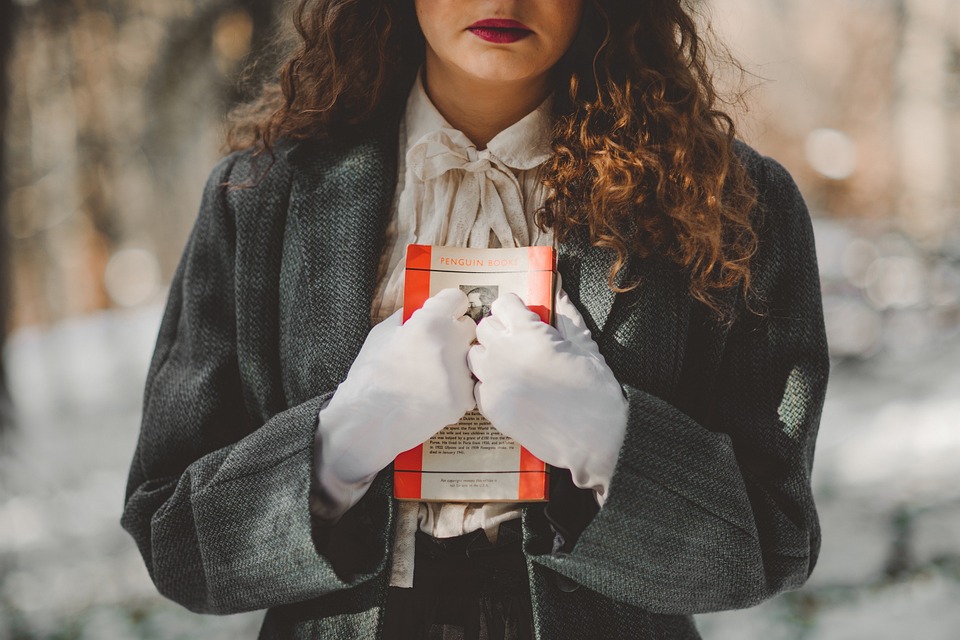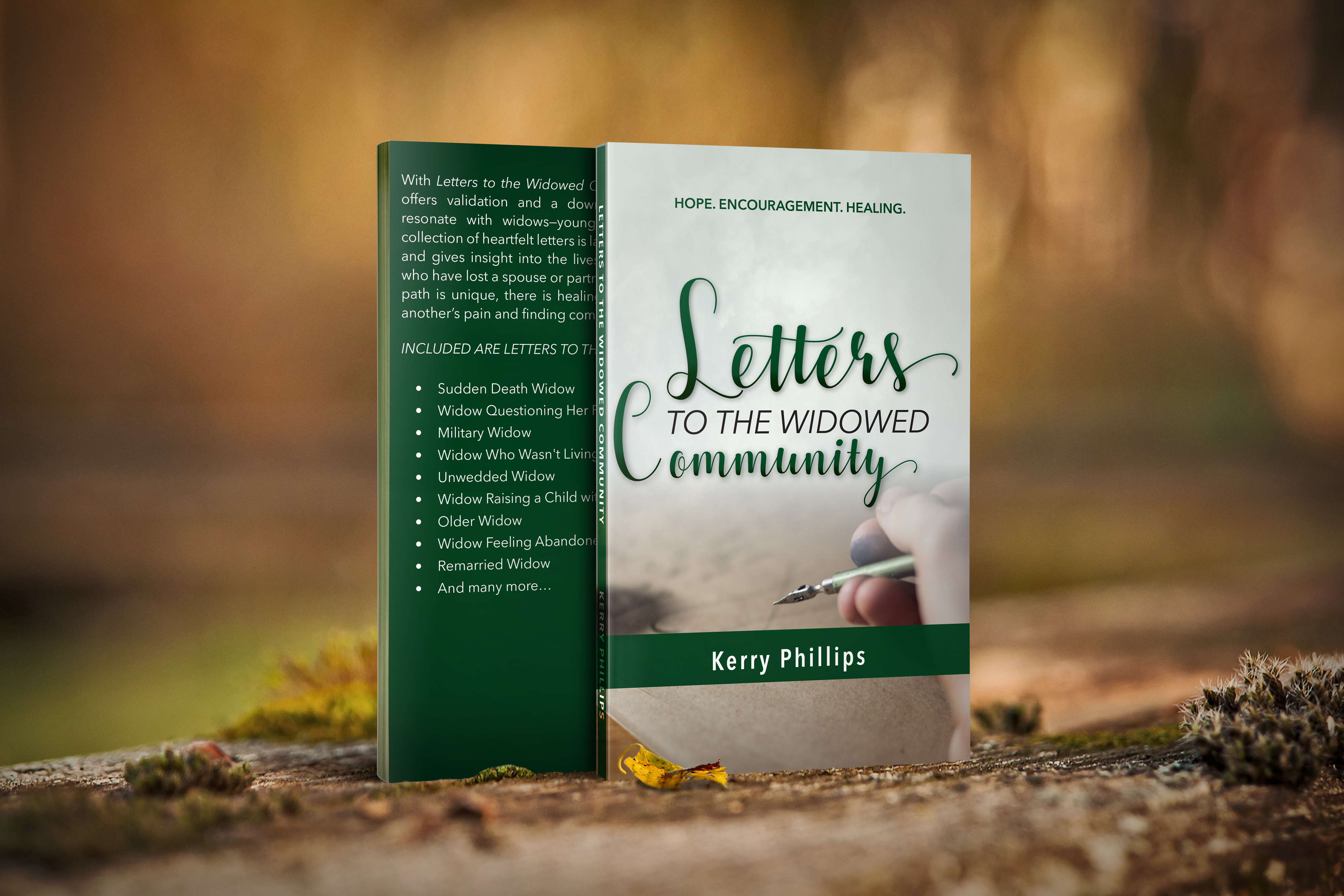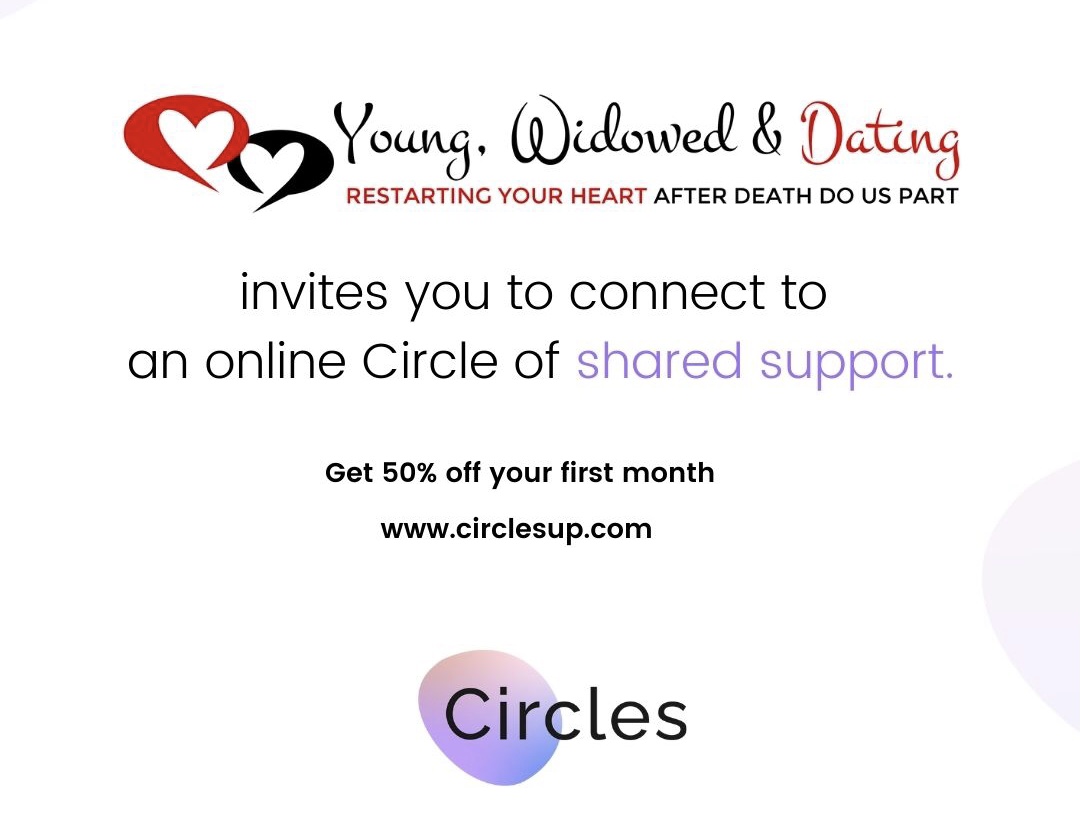There is a quote that says, “Everything will be okay in the end. If it’s not okay, it’s not the end.”
I wish someone would have told me six years ago that I would be “okay”. I wish there was another widow who could have told that even though I couldn’t see the road ahead, I’d eventually get out of the dark place to which my grief had taken me.
Yesterday, as I sat in church – the very place I was when I got the news that my husband had died – the pastor eloquently spoke of Christ and the Resurrection. As part of the sermon, he shared a “spoiler alert”, how even though we have hard times, lose people, etc., that we’d eventually get to a place of healing and get to the other side of pain.
I want to now give you a spoiler alert.
Your husband died but that’s not how your story has to end. I would never diminish the pain of losing a spouse. I live with that pain every single day. I do want you to know, however, that there is life on the other side of the pain, the hurt, the disappointment, the anger…the death. We get to choose how we ultimately respond to this crappy set of circumstances. We choose if we will become better or bitter. We decide if we live big and boldly or if we become defined by our partner’s death. Will you cease to live, laugh and love again? Will you become reclusive, simply waiting for your “turn”?
ADVERTISEMENT
Death often buries our hope. It makes “cannot” a part of our daily vocabulary: I cannot raise my children alone. I cannot make all these day-to-day decisions without him/her. I cannot do the things I had on my bucket list? I cannot get through school without his/her support. I cannot survive without my spouse.
Please know, as my pastor said, that life is always stronger than death. I recently shared this and it resonated with many so I’ll share it here too:
Widowhood is like a jigsaw puzzle.
Except, we only have the pieces – the beautiful picture that is supposed to be our guide is gone.
Sure, we have the border pieces, but we have no idea what our life will look like once the reality of our spouse’s death settles in.
So, we dump the pieces of our shattered lives onto a table.
We examine the pieces – pieces of who we were, who we are and ultimately who we want to be.
Some pieces don’t even seem like they are from our puzzle set. They seem like leftovers from another place and time.
Yet, with each passing day, we sort, twist and rotate each piece trying to make sense of it. Attempting to figure out how the piece fits into the bigger picture…a picture of what? We don’t know.
Some days, we get to connect several pieces together. Other days, we can’t find a single corresponding color.
But we keep going.
There are beautiful, color pieces some days – days when there is hope and happiness.
Sometimes the puzzle pieces are dull and dark and we wonder if the picture is even worth creating. Are we creating a thing of beauty or a reflection of our pain?
But we continue.
Day by day we work on the puzzle, unsure, insecure and afraid. We don’t know what we’re doing, just doing the best we can with the pieces that we were given.
After a good long while, we see the beauty of the puzzle coming together. It’s not whole yet but we can see a glimmer of the bigger picture.
We’ll find there are pieces in random sections, waiting to be put together.
We worry we won’t be able to connect these miscellaneous clusters together.
But we must move forward, even if it’s baby steps.
Then one day, our eyes fill with tears as reach for the final piece of the puzzle.
We’ve created a masterpiece out of the pieces that seemed so random.
But, the final piece is nowhere to be found.
Is the puzzle any less beautiful because a single – though important piece – is missing?
Celebrate all that you’ve accomplished – whether you’re just now pouring out the puzzle pieces onto the table or you’re beginning to see your life come together post-loss.
You can still create a life of beauty, love, laughter, and happiness with a puzzle piece missing.
You may not see it now – or even tomorrow – but the spoiler alert is that in the end, you’re going to make it out of the rawest stage of grief. You’re going to be okay. “Okay” may not look like it would have had your spouse still been alive. This new “okay” will be different for sure. But, always remember that as long as there is life, we can choose how we live it – depite our circumstance.
*This article originally appeared on the Hope for Widows Foundation website.*
Kerry runs a support group for young widows and widowers venturing back into the world of dating and is a contributor to Open to Hope. She is the author of “Letters to the Widowed Community” and “The One Thing: 100 Widows Share Lessons on Love, Loss, and Life.” Her articles on widowhood and grief have been featured in HuffPost and Love What Matters. She’s also the host of the Young, Widowed & Dating podcast.




Never heard this before. Makes alot of sense to me. I lost my husband to Sepsis June 2017. Very Devastating. My life still feels as if its Shattered. Thank you for this article
Glad it could be of help. I hope you’ve found a widow group – in person or online – that can help you feel so less alone and show you there can be light at the end of the tunnel
Hi, I’m 32, Alejandro was 33 years old at the time. I Lost muy husband on october 2018. Just one month after our only baby boy was born. We got married on june 2016 after a 9 year old relationship. He died inexpectablly fast and horribly on my arms. I was on shock, and for months I felt so guilty, because I didn’t notice a sign, I couldn’t help him, also I was so tired and hormonal trying to adapt to the baby so I wasn’t cheerfull or attentive with him all the time. Months have pass, there are quiet days and days I cry; but now, most of the time, I feel so lucky, so gratefull for having had the pleasure of knowing and loving maddly such a wonderfull man, I’m so gratefull that we had the chance of getting married, travell, laughing, crying, growing together, he had the chance of meeting our son, how wonderfull, isn’t it?. He taught me to love, to overcome difficulties, and also gave me the most important thing of my life, he gave me our son, an awesome baby that everyday looks more and more like his dad. My very best friend, I can feel him, I can hear him telling me as he used to: I love you so so so much little doll.
I lost my girlfriend through sepsis in 2018 but still doesn’t get any easier especially when she was failed my the system
This was beautiful. I am glad to find your site. I lost my husband 17 weeks ago to cancer. Trying to navigate this with some hope, grace and dignity. But it sucks. 20 years of my life vanished a long with my heart and soul.
Glad it was helpful, Joy. Hope for Widows Foundation and Soaring Spirits International are also great resources.
I was just telling my mother that I know better to make plans for the distant future. All my 20 years in the future plans included my husband and I don’t have him anymore. Instead, now I’m making plans for the immediate future and not worrying about that far ahead anymore. My life can still be beautiful.
Sounds like a great way to live!
Thank you, I lost my husband and my best friend of almost 25 years not even 2 months ago. I find everything hard and feel guilty if I have a moment of peace. I dont know how to start all over again. I am only 46 with 2 teenage girls. Im lost, I feel abandoned and very sad. I wish I could find a group near me to have some support.
Try the Soaring Spirits website. You may be able to locate a group in your area.
I totally understand. I’m 44 years old and widowed with 3 teenage girls ! Lost my husband this May 2019.
I am 42 years old and lost my husband 9 months ago in Sep 2019 for cancer. 2 beautiful kids – 14 and 10. I am just chugging along. Someday I cry a lot, some days I just move forward. I dont find day to day stuff hard, but the loss that no one can ever wrap their hand around my shoulder and there is no one that I can lay my head on and that there is no one to cuddle and feel safe and secure in the night is what hurts me most.
Big hugs. Support groups such as Hope for Widows Foundation are great for this early part of grief.
Support is the most valuable aspect of getting through grief! I Made it through with the shoulders of friends and family to cry on, friends and family who just sat quietly with me, and brought food for my 4 children and I when I couldn’t cook!! Almost 11 years out from the devastation and looking forward to a wonderful future!! It is beautiful that you reach out to the young widow and offer your support! Good job Kerry Phillip’s! May God continue to bless your ministry!!
I lost my husband on December 14th 2020! He was only 69. To many that may seem old but he was young! We were thinking about retirement. I went to wake him up for work and he was gone! His arm still under my pillow where my head had been! Totally unexpected!
I am trying! I ask myself everyday how I got from there to here a whole year later! I miss him like crazy! But my faith in God has got me this far I know I’ll make it! Life is not looking how I had hoped it would!
I love this quote “ You never know how strong you are until you have no other option than to be be strong!